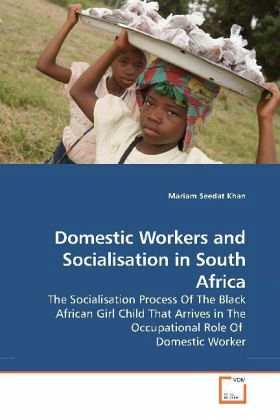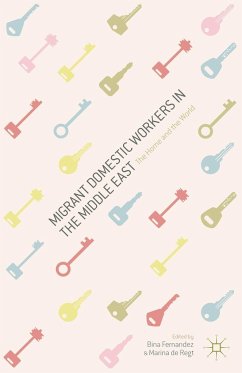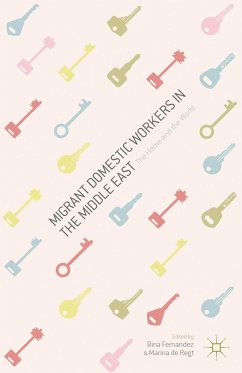
Domestic Workers and Socialisation in South Africa
The Socialisation Process Of The Black African Girl Child That Arrives in The Occupational Role Of Domestic Worker
Versandkostenfrei!
Versandfertig in 6-10 Tagen
45,99 €
inkl. MwSt.

PAYBACK Punkte
23 °P sammeln!
Domestic workers in South Africa have historically endured a great deal of inequalities, oppression and exploitation. Their dual oppression as woman within the traditional patriarchal African family structure, and as domestic workers who are subject to western versions of Patriarchy in the homes of their employers. The gender biased socialisation process that the girl children experienced in the homes of their parents/guardians/care- givers, provide empirical evidence for the argument advanced in this book. They suffer as a result of their race, class, socialisation process and gender. This bo...
Domestic workers in South Africa have historically endured a great deal of inequalities, oppression and exploitation. Their dual oppression as woman within the traditional patriarchal African family structure, and as domestic workers who are subject to western versions of Patriarchy in the homes of their employers. The gender biased socialisation process that the girl children experienced in the homes of their parents/guardians/care- givers, provide empirical evidence for the argument advanced in this book. They suffer as a result of their race, class, socialisation process and gender. This book sets out to understand the link between the socialisation process that young girls undergo within a traditional African family that leads them to arrive in the occupational role of domestic worker. A sociological analysis of Domestic Workers was conducted in the Durban Metro Region, KwaZulu- Natal, South Africa. This book explains the impact of the childhood socialisation process on the African girl child who is a domestic worker in a post apartheid South African society.












